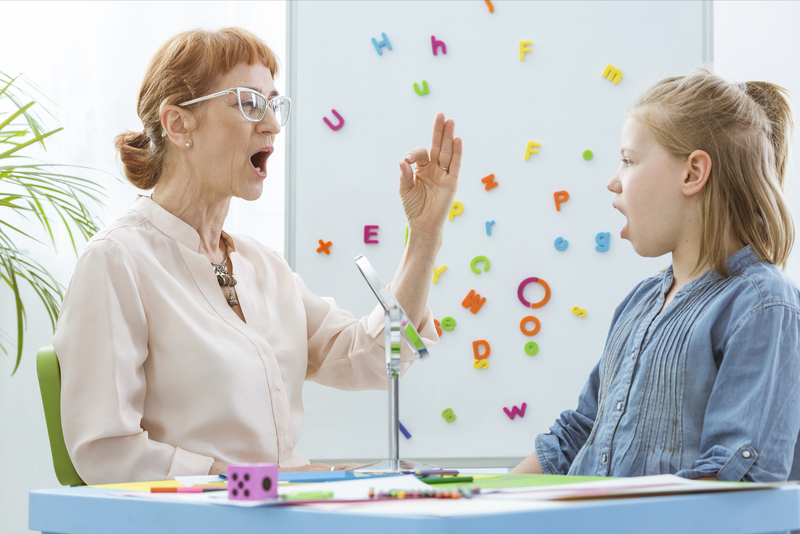Speech and Language Therapy
Our Speech and Language Therapy department is equipped to service all of your S/L therapy needs. We can evaluate your child’s Speech and Language skills, and then create a therapy plan that will help them make progress in the classroom setting. It’s not just how we pronounce words (articulation) but how we put them together in a meaningful way that helps us communicate effectively. We can help you overcome Speech and Language barriers, one day at a time.

Speech and Language Therapy
Our Speech and Language Therapy department is equipped to service all of your S/L therapy needs. We can evaluate your child’s Speech and Language skills, and then create a therapy plan that will help them make progress in the classroom setting. It’s not just how we pronounce words (articulation) but how we put them together in a meaningful way that helps us communicate effectively. We can help you overcome Speech and Language barriers, one day at a time.
Speech and Language Evaluations
Articulation Skills
Articulation refers to the way we pronounce speech sounds. As children develop spoken language, it is expected they will make speech errors, such as producing the letter /r/ as a /w/ as in saying “wabbit” for the animal “rabbit.” This is a typical part of the language development and should not be cause for alarm unless these difficulties persist beyond a developmentally appropriate stage.
Receptive/Expressive Language
Receptive language refers to understanding the communication from others in your environment, including home, school, work, and community. Receptive language includes also includes interpreting the non-verbal social communication of others. Poor receptive language impacts reading skills, written language, and social skills in the educational environment.
Expressive language refers to the verbal and nonverbal methods used communicate your personal wants, needs, thoughts, and ideas with others. Spoken language (verbal) and gestures and/or signing (nonverbal) are each a form of language expression. Expressive language is an essential component of daily functioning at home, school, work, and within the community.
Social (Pragmatic) Language Skills
Social communication is an essential component of daily functioning, throughout the life cycle. Pragmatic language, which is also referred to as social communication, is the process of using speech and language for the purpose of socially communicating with others.
Social communication is essential to express thoughts, feelings, emotions, and needs and can take place through both verbal and nonverbal means. Examples of nonverbal social language include facial expressions, gestures and body language used during interactions with family, friends and peers.
Pragmatic skills are an important aspect of building and maintaining relationships. Peer relationships, family relationships, student/teacher relationships and work relationships are all adversely impacted by limited pragmatic skills.
Feeding/Swallowing
Feeding therapy helps children who may experience challenges eating due to sensory, environmental, behavioral, or oral motor factors. Speech-language pathologists receive extensive training to address concerns with nutrition and growth, family dynamics of mealtimes, and social aspects of eating.
In addition to addressing speech and language challenges, speech-language pathologists can help children with feeding and swallowing concerns. If you have concerns about your child’s feeding and/or swallowing abilities, you may want to speak with your child’s pediatrician and explore the idea of a referral for a screening or comprehensive evaluation with a speech-language pathologist.
“My passion is helping people to find their voice and use it in the world around them.”
Olivia Tennison, M.S., CCC-SLP – Head of Speech and Language Therapy





Book your appointment with a Speech and Language Pathologist Now!
Call now to book!
(614) 604-6067
Send us an Email:
office.admin@mindscapesohio.com
Visit our Office:
1241 Hill Rd N
Pickerington,Ohio 43147
